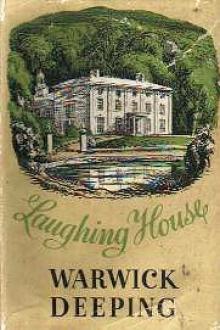Genre Other. Page - 313

a man came cautiously out of the ravine, or rather out of its mouth. He was tall, slender, yet seemed to possess the bone and muscle of a giant. His eyes were jet black, fierce and flashing, and his face had a stern, almost classic beauty of feature, which would have made him a model in the ancient age of sculpture. He carried a repeating rifle, two revolvers, and a knife in his belt. His dress was buckskin, from head to foot.
"You are Persimmon Bill?" said Jack, in a tone of inquiry. "Yes. Who are you, and how came you by the signal that called me out?"
"A woman in town gave it to me, knowing she could trust me."
"Was her first name Addie?"
"Her last name was Neidic."
"All right. I see she has trusted you. What do you want?"
"Help in a matter of revenge."
"Good! You can have it. How much help is wanted?"
"I want one man taken from a party, alive, when he gets beyond civilized help, so that I can see him tortured. I want him to die by inches."
"Ho

The merchants, nobles, and the slaves lucky enough to attend had waited outside Dan Trex's arena for days. They knew the value of entertainment in such a dark world. They wore cowls to protect themselves from the sun as they waited. Entire businesses thrived on the forced mercantile of the captive audience. Food went for thrice its cost to those waiting near the entrance. Water went for five times as much.
The arena was as old as the city, built in the days of the old empire for a king now long forgotten. The octagonal arena was a machine, an engine that built warriors out of the raw material of flesh, blood, and steel. Now, thousands of years later, it still served that purpose.
The machine had built Dan Trex's army, half a million of the most ruthless and well trained soldiers to ever walk the planet. While one hundred and fifty thousand civilians and slaves got drunk, gambled, shat, fucked, and slept on the stone steps; one hundred thousand of his men sat in silence wearing black a

ewitnessing something very like the suicide of civilizationitself. There are people in both camps who believe thatarmed and economic conflict between revolutionary andnon-revolutionary Europe, or if you like between Capitalismand Communism, is inevitable. These people, in both camps,are doing their best to make it inevitable. Sturdy pessimists,in Moscow no less than in London and Paris, they go so faras to say "the sooner the better," and by all means in theirpower try to precipitate a conflict. Now the main effort inRussia to-day, the struggle which absorbs the chief attentionof all but the few Communist Churchills and CommunistMillerands who, blind to all else, demand an immediatepitched battle over the prostrate body of civilization, isdirected to finding a way for Russia herself out of thecrisis, the severity of which can hardly be realized by peoplewho have not visited the country again and again, and tobringing her as quickly as possible into a state in which shecan export her raw ma

nationwide portrayal of "the important" as composed primarily of the doings and undoings of entertainers, athletes, politicians, and criminals.
He would not, I think, have been unduly dismayed by all that. Of course, he would have been dismayed , but not unduly. Such things are implicit in the freedom of the press, and if enough people want them, they'll have them. (Jefferson would surely have wondered why so many people wanted such things, but that's not to the point just now.) Jefferson did, naturally, see "the press" giving news and information, but, more than that, he also saw in it the very practice of informed discretion. In his time, after all, Common Sense and The Federalist Papers were simply parts of "the press." And "every man able to read" would have been, for Jefferson, every man able to read, weigh, and consider things like Common Sense and The Federalist Papers. He would have recognized at once our editorial pages and our journals of enquiry and opini

ned.
Number Four changed by the addition of an extra latrine for the second floor. Females on the first, juvenile delinquents on the second.
Bennington had learned to move like a ghost, move quietly or die, on the almost forgotten battlefields of a police action in Korea. He had had a post-graduate course in the South-East Asian jungles. On the Chilean desert he had added to his skills.
He moved now as he had then.
But there was little reason for caution. The guards were too busy collecting their fees, the juvenile delinquents were too busy acting as ushers, with even the sex deviates from Number Three busy.
The customers, of course, were far too interested in what they were buying.
And there was nothing to be done tonight. Bennington snarled to himself, as he carefully made his way back to the house.
But tomorrow morning....
* * * * *
A good breakfast inside of him, the early morning sun brightening the scene before him, not even combined could t

wenot see that this woman's nerves were crying out for help; that, asher wisest friends, they were appealing for right ways of living; thatthey were pleading for development of the body that had been onlyhalf-trained; that they were beseeching a replacing of morbidness offeeling by those lost joyous happiness-days? Were they not fairlycursing the wrong which had robbed her of the hope and rights of herwomanhood?
A new life came when she was twenty-eight, with the saving helper whoheard the cry of the suffering nerves, and interpreted their message.She had told him all. His wise kindness made it easy to tell all. Heshowed her the wrong invalidism thoughts, the unhappy, depressing,devitalizing attitude toward death. He revealed truths unthought byher of manhood and womanhood. He pointed out the poisonous trail ofher enmity, and she put it from her. He inspired her to make friendswith her nerves, who were so devotedly striving to save her. Simple,definite counsel he gave, for her body's sake. H

one about some very frightening and mysterious happenings in a modest suburban house on Long Island, and the other about excellence. I now have reason to hope that she has been reading Emerson, and she probably has. She is not a shirker, but, at least usually, as much a person of serious intent as one should be at her age and in her condition. Her understanding of Emerson is not perfect, but neither is mine. The essay she has been reading, I have read many times, and every time with the realization that my understanding of it, up to now, of course, has not been perfect.
I know this as surely as I know that Socrates was once exasperated by a yapping dog: Someday, perhaps this day, when I have explained some difficult proposition's exploration by Emerson, that young woman, or somebody else very much like her, will raise her hand and ask the question, and ask it just as Socrates asked, out of what she knows to be her ignorance, and her desire not to be ignorant. And her question will remind me that I am

back to London. I cannot say that we were sorry.
For, let us be candid. I could be classed as a selfish, and unpatriotic old curmudgeon, but when we have cut the sentimental cackle, one has to confess that you cannot mix classes that are as different as chalk and cheese. These women from the East End were much less clean than animals, and far less likeable. They were lazy lumps of flesh, coarse, vulgar, noisy, ignorant. You could hear their hideous voices and their obscene laughter all over the house. And you could smell them. Blame our social scheme, if it pleases you, but the fact was incontestable, they were no better than unclean savages in our lovely house.
I think it must have been in August that I received my first warning. I had gone shopping in Melford, and I met Gibson in the ironmongers. He was looking worried and cross.
"Been requisitioned yet?"
"Requisitioned?"
"They are taking my place over next week. I expect you will be."
I think I gaped at him.

. Sometime during our residence in Baltimore, Spec disappeared, and we never knew his fate.
From that early time I began to be impressed with my father's character, as compared with other men. Every member of the household respected, revered and loved him as a matter of course, but it began to dawn on me that every one else with whom I was thrown held him high in their regard. At forty-five years of age he was active, strong, and as handsome as he had ever been. I never remember his being ill. I presume he was indisposed at times; but no impressions of that kind remain. He was always bright and gay with us little folk, romping, playing, and joking with us. With the older children, he was just as companionable, and the have seen him join my elder brothers and their friends when they would try their powers at a high jump put up in our yard. The two younger children he petted a great deal, and our greatest treat was to get into his bed in the morning and lie close to him, listening while he talked to us i
